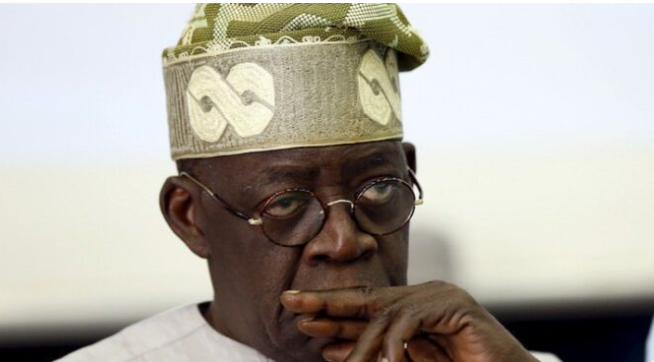The Socio-Economic Rights and Accountability Project (SERAP) has called upon President Bola Tinubu to halt the “weaponization” of security agencies, particularly the Department of State Services (DSS), emphasizing that instead of using these agencies to intimidate citizens, the government should focus on alleviating the country’s pressing economic challenges. SERAP’s concerns were articulated in an official statement dated October 19, 2024, wherein they criticized the government’s alleged suppression of fundamental human rights, citing an increase in baseless lawsuits aimed at human rights defenders, activists, and journalists. Such actions, they argue, not only threaten democracy but also deepen impunity and undermine the rule of law, which are essential for a thriving civil society.
SERAP highlighted a troubling incident where DSS officials reportedly invaded their office in Abuja shortly after the organization urged the president to intervene in rising petrol prices. The DSS defended its actions, claiming they were part of a routine investigation, but SERAP portrayed such moves as a blatant attempt to intimidate those who advocate for transparency and accountability. According to SERAP, using state security to target human rights advocates is unprecedented and represents a significant shift in governance tactics. This is the first time since the organization’s inception that the security apparatus has been turned against them in such a manner, marking a dangerous precedent for civil liberties in the country.
In their statement, SERAP condemned how the current administration seemed to misuse defamation laws to repress dissent instead of addressing corruption within the oil sector and other systemic economic issues. They argued that the government should be focusing on pressing issues like the rise in fuel prices and alleged financial mismanagement, rather than persecuting those who bring such matters to light. SERAP called for an immediate withdrawal of the defamation lawsuit targeting their organization and its staff, asserting their readiness to mount a legal defense if necessary. They firmly maintained that the government’s focus should be on ensuring accountability and justice for its actions rather than using legal threats to silence opposition.
Moreover, SERAP urged the government to thoroughly investigate the serious allegations surrounding corruption in the Nigerian National Petroleum Company (NNPC), including a large bailout fund and substantial debts to suppliers. They expressed disappointment in the government’s lack of responsiveness to previous recommendations, such as reversing the illegal increases in petrol prices. The organization’s calls for accountability and transparency are rooted in the belief that a culture of rule of law fosters an environment with less corruption and greater respect for human rights among citizens.
The organization highlighted the critical need for a functioning democracy, which, in their view, hinges on the government’s respect for human rights. They emphasized that threatening activists and journalists serves only to weaken democratic institutions and perpetuate a cycle of impunity where human rights abuses are overlooked. SERAP’s appeals are directed at fostering an environment where citizens can freely express their views and hold the government accountable without fear of retribution from state authorities.
In conclusion, SERAP’s statements reflect not only their alarm at the current state of human rights in Nigeria under President Tinubu’s administration but also their commitment to continue advocating for justice and accountability. Their focus is not merely on defending their organization but on ensuring the broader protection of civic space and human rights in the country. They reiterate the importance of the Nigerian government embracing the rule of law as a foundation for tackling corruption and restoring public trust in governance, thus revitalizing efforts aimed at addressing the overarching economic issues affecting the nation.


